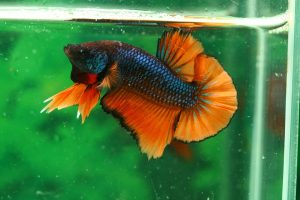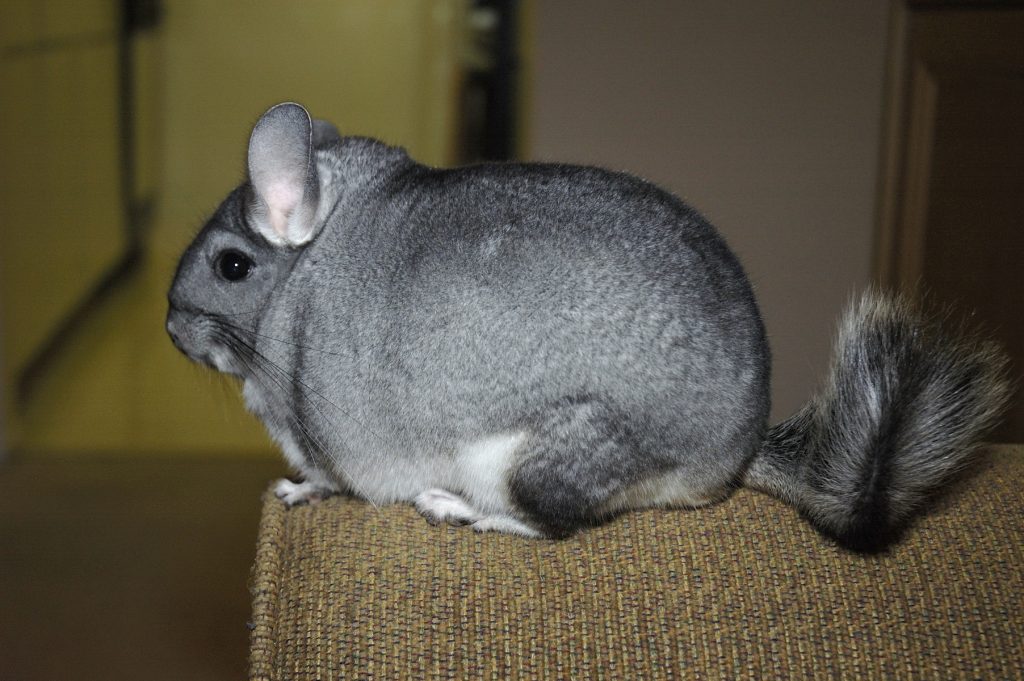Aside from being fluffy, cute, and just down-right adorable, pets also teach children about responsibility, empathy, and respect for nature. No matter the size and shape of the pet you choose, it will always need food, water, grooming, and most importantly, love and care.
In this day and age, however, most parents rarely have enough time to take care of a cat or a dog, no matter how much they want to. But worry not; there are low-maintenance pets that are just as adorable and just as loving and would make great additions to new families.
Rabbits
 Talk about fluffy and cuddly! Aside from their adorability, rabbits are also very affectionate and surprisingly intelligent, so much so that you can train them to use a litter-box! Many veterinarians also suggest adopting rabbits from a rescue shelter, as these rabbits would have been socialized to other animals early on, making them easier to integrate into your home.
Talk about fluffy and cuddly! Aside from their adorability, rabbits are also very affectionate and surprisingly intelligent, so much so that you can train them to use a litter-box! Many veterinarians also suggest adopting rabbits from a rescue shelter, as these rabbits would have been socialized to other animals early on, making them easier to integrate into your home.
With proper care and nutrition, a normal rabbit can live up to nine years, although it’s not uncommon for them to live up to ten or eleven. Despite their wild cousins living in the forests, it’s best to keep rabbits indoors.
Parakeets
Parakeets, also known as budgies, are a bit delicate, which makes them perfect for older children to care for. These are tiny birds that to around 8 inches in length, but they are super friendly and get easily attached to their human families. Parakeets are very intelligent, and can be taught to recite certain words, whistle songs, and some Parakeets have also been taught how to dance!
Unlike larger birds like African grays or Parrots, both of which can live up to 80 and require more upkeep, Parakeets require less maintenance and live up to around nine years. Parakeets subsist on a diet of seeds, fruits, extruded pellets, and even vegetables. They do require a LOT of exercise, so make sure you get them a large cage where they can move about comfortably or, if you can’t find a large enough cage, let them walk about in the living room.
Chickens
 It’s actually not uncommon for people living in farms or rural areas to keep chickens as pets! But families living in small towns or even cities don’t have to worry; with the proper licenses, you can keep a chicken in your home, too. Aside from functioning as a living alarm clock (especially if you get a rooster), chickens also keep your home free of insects like ticks and mosquitoes. If you get a hen along with your rooster, expect fresh eggs every so often. Talk about a pet that keeps on giving! A cool thing about chickens? They are the last living relative of the King of all dinosaurs, Tyrannosaurus Rex!
It’s actually not uncommon for people living in farms or rural areas to keep chickens as pets! But families living in small towns or even cities don’t have to worry; with the proper licenses, you can keep a chicken in your home, too. Aside from functioning as a living alarm clock (especially if you get a rooster), chickens also keep your home free of insects like ticks and mosquitoes. If you get a hen along with your rooster, expect fresh eggs every so often. Talk about a pet that keeps on giving! A cool thing about chickens? They are the last living relative of the King of all dinosaurs, Tyrannosaurus Rex!
A well-cared for chicken can live anywhere between 12 and 15 years. They do require a LOT of room to walk around, so make sure your home has sizable yard space, or, if you’re building a shelter, make sure they have enough room to roam.
Guinea Pigs
Guinea pigs are basically over-sized hamsters, which means double the cuteness! A well-fed guinea pig can weigh up to three pounds, and they come in a wide variety of colors and patterns which are just as distinctive as their personalities!
If cared for properly, a guinea pig can live up to ten years. They eat prairie hay and fresh vegetables, but commercial pellets work fine too. A word of warning, however: if you’re getting more than one guinea pig, make sure you get the same gender. Guinea pigs are notorious for breeding uncontrollably, and if you’re not careful, you might have more guinea pigs than you were prepared for!
Gerbils
 This furry little ball of energy looks so adorable, you might be tempted to just hug them tight every time you see them but be careful! Gerbils need to be handled very gently. This makes them perfect pets for older children who have learned self-control. While hamsters and other rodents are nocturnal, gerbils are day-creatures, meaning that you can play with them during the day.
This furry little ball of energy looks so adorable, you might be tempted to just hug them tight every time you see them but be careful! Gerbils need to be handled very gently. This makes them perfect pets for older children who have learned self-control. While hamsters and other rodents are nocturnal, gerbils are day-creatures, meaning that you can play with them during the day.
When properly cared for, gerbils can live up to 4 years. As with guinea pigs, if you’re getting more than one gerbil, make sure they are the same gender as they tend to breed uncontrollably.
Mice and Rats
While these critters get a bad rap in media, mice and rats are actually perfect pets for families looking for easy to maintain and intelligent creatures. In fact, rodents are so smart, you can actually teach them tricks like rolling over, fetching, and even running obstacle courses!
With the right food, diet, and care, mice and rats can live up to three years.
Chinchillas
Furry and big-eyed, chinchillas are popular for being absolutely adorable. They also look goofy because of front legs that are shorter than the ones on the back. While it’s tempting to cuddle them endlessly, be careful; chinchillas are very delicate and require gentle handling, so it’s best for children above the age of 10.
Chinchillas eat commercial pellets and fresh water. They also need a room temperature that’s kept around 70 degrees.
Betta Fish
 Betta fish are known for their vibrant, colorful scales. While it’s tempting to get a handful of Betta fish in a tank, be warned: their other name is the Siamese Fighting fish, and they live up to their nickname by constantly fighting with each other.
Betta fish are known for their vibrant, colorful scales. While it’s tempting to get a handful of Betta fish in a tank, be warned: their other name is the Siamese Fighting fish, and they live up to their nickname by constantly fighting with each other.
Despite this, however, Betta fish are very easy to manage and can live up to three years if kept in a clean tank with water that’s kept at 78 degrees.
Miniature Horses
These cute and tiny horses aren’t meant for riding—with the largest ones going up to only 34 inches in height—but they’re great for teaching kids how to take care of animals. They require a fair bit of maintenance, from food and shelter to exercise, but they’re very affectionate and highly intelligent.
With the right amount of care, miniature horses can live up to 30 years, giving your child a best friend for life.
Animals are great companions and teachers for children, and it also gives them an opportunity to learn soft skills like empathy and responsibility.

